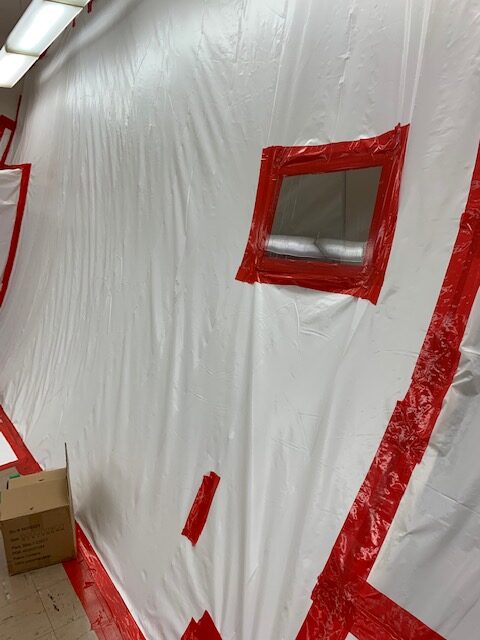The School District of Philadelphia is making progress toward meeting and maintaining our environmental goals, and Steve Link, Director of Environmental Management & Services, shared an important update with the Environmental Advisory Council (EAC) during its first quarterly meeting of 2022 on January 24.
The goal of the EAC is to communicate with representatives from across the City about the progress that’s being made to address asbestos and lead in our schools. The District is taking several steps to advance its asbestos management program, including obtaining outside assistance for AHERA inspections and the vast amount of data they produce. The District has issued an RFP/RFQ for a contractor to manage the process and invested in the development of a software program to manage inspection data. It has also increased staffing to oversee abatement, manage asbestos plans, and be dedicated to asbestos management.
Fun fact: Did you know that Philadelphia has some of the most stringent asbestos regulations in the nation? The Council met with a consultant who provided valuable insight about the rules and regulations governing asbestos in Philadelphia.
A: There are two separate but overlapping federal sets of rules for managing asbestos: the Asbestos Hazard Emergency Response Act (AHERA), and the Clean Air Act. The City of Philadelphia has applied even more rigor to those standards through its Asbestos Control Regulation (ACR), which adds layers of protection by requiring additional licensing, documentation, containment measures, and sampling.
Most of our District’s 310 buildings date back to when asbestos was commonly used in construction. The presence of asbestos is not, itself, a danger. However, when asbestos is disturbed and fibers become airborne, it must be managed.
In 2021, teams removed 465,856 square feet and 13.69 miles of asbestos-containing material in surfacing and pipe insulation from our schools. The EAC was provided handouts to share with updated progress on lead and asbestos programs and about federal and city regulations. More information about the EAC meeting can be found here. The EAC’s next meeting is at the end of April.

Recent Comments